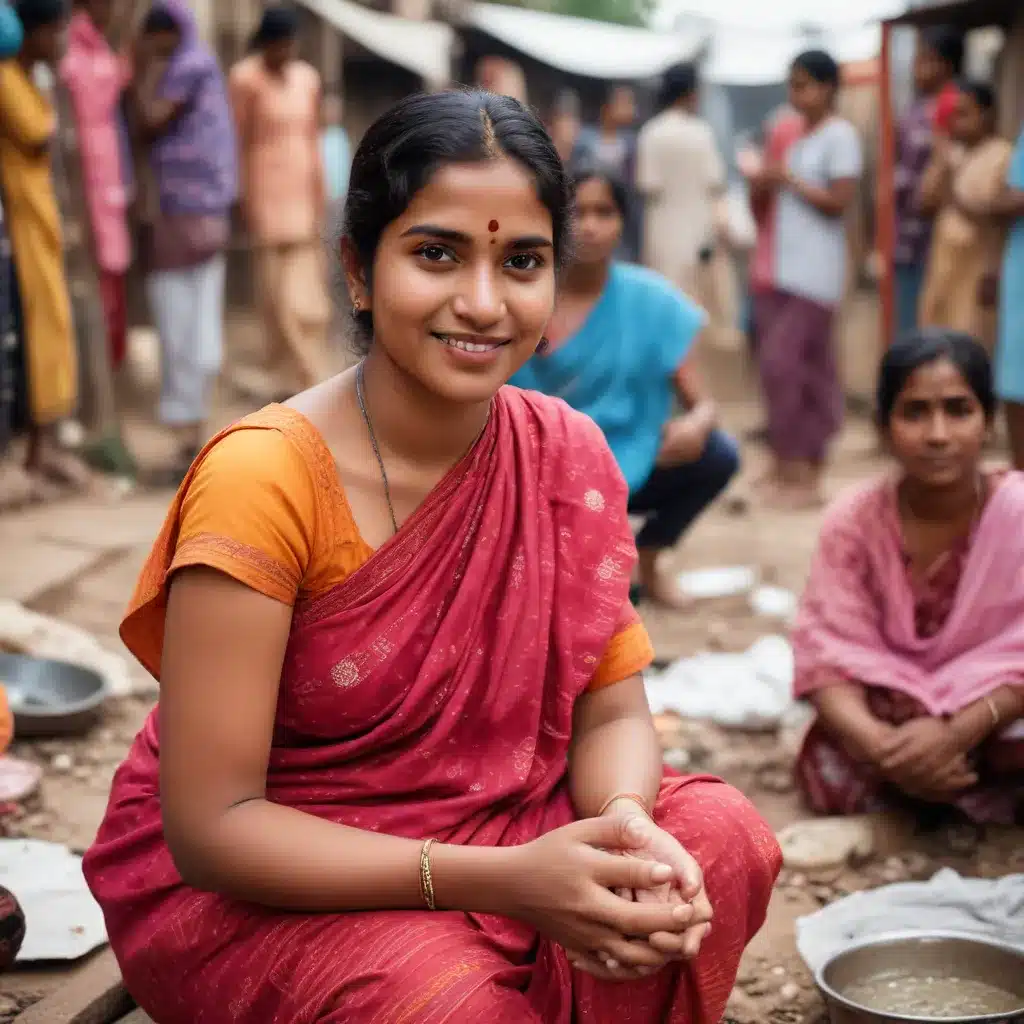
Addressing the Intersecting Challenges of Menstrual Equity and Urban Poverty
In the bustling city of Hyderabad, home to over 10 million residents, a significant population resides in informal settlements, commonly referred to as slums. These vibrant yet underserved communities face a multitude of challenges, including inadequate access to basic services, substandard living conditions, and socioeconomic marginalization. Amidst this complex reality, the issue of menstrual health and hygiene remains a critical yet often overlooked concern, disproportionately impacting the lives of women and girls in these urban informal settlements.
Understanding the Menstrual Health Landscape in Hyderabad’s Slums
Menstrual health is a fundamental aspect of overall health and well-being, yet it is often shrouded in stigma and silence, especially in marginalized communities. In the slums of Hyderabad, many women and girls lack access to essential menstrual hygiene products, proper sanitation facilities, and comprehensive menstrual health education. This confluence of factors perpetuates a cycle of shame, exclusion, and limited opportunities for those who menstruate.
Barriers to Menstrual Equity
Affordability and Access: The high cost of commercial sanitary pads and tampons places them out of reach for many low-income households in the slums. Families often resort to using makeshift or unhygienic alternatives, compromising their health and dignity.
Inadequate Sanitation Infrastructure: The lack of clean, private, and functional toilets and bathing facilities in slum settlements hinders the ability of women and girls to manage their menstrual cycles with dignity and safety.
Sociocultural Norms and Taboos: Deep-rooted cultural stigmas and misconceptions surrounding menstruation continue to limit open discussions and perpetuate harmful practices, such as menstrual seclusion and exclusion from certain activities.
Limited Menstrual Health Awareness: Comprehensive menstrual health education is often scarce, leaving many slum residents, particularly young girls, uninformed about the biological processes and proper hygiene practices.
Towards a Holistic Approach: Mainstreaming Menstrual Health in Slum Upgrading Initiatives
To address the multifaceted challenges of menstrual health in Hyderabad’s informal settlements, a holistic and integrated approach is necessary. By mainstreaming menstrual health and hygiene into broader slum upgrading initiatives, communities can experience transformative and sustainable change.
Integrating Menstrual Health into Slum Upgrading Efforts
Improved Sanitation Infrastructure: Slum upgrading projects should prioritize the construction of clean, private, and accessible toilet and bathing facilities that cater to the specific needs of menstruating individuals. This includes ensuring the availability of water, waste disposal mechanisms, and adequate lighting.
Menstrual Hygiene Product Distribution: Establishing community-based distribution centers for affordable, high-quality menstrual products can alleviate the financial burden and improve access for women and girls in the slums.
Comprehensive Menstrual Health Education: Integrating menstrual health education into community-based programs, schools, and healthcare services can empower slum residents with knowledge, dispel myths, and foster open dialogues around menstruation.
Engaging Community Leaders and Stakeholders: Collaborating with local community leaders, women’s groups, and grassroots organizations can help build trust, amplify the voices of marginalized communities, and ensure the interventions are contextually appropriate and sustainable.
Leveraging Partnerships and Funding Mechanisms
Unlocking the necessary resources and technical expertise to implement these holistic interventions requires strategic partnerships and innovative funding mechanisms.
Collaboration with Government Agencies: Engaging with local and state government bodies can mobilize political will, align menstrual health initiatives with broader urban development plans, and secure long-term funding and policy support.
Leveraging Private Sector Involvement: Fostering partnerships with corporate social responsibility (CSR) programs, local businesses, and social enterprises can catalyze investment, product innovation, and community-driven solutions.
Community-Based Financing Mechanisms: Empowering women and girls to establish savings groups, microfinance initiatives, and community-managed funds can enhance their financial autonomy and ensure the sustainability of menstrual health services.
Monitoring, Evaluation, and Knowledge Sharing
Continuous monitoring, rigorous evaluation, and effective knowledge-sharing are crucial for the long-term success and scalability of these integrated menstrual health and hygiene interventions in Hyderabad’s informal settlements.
Data-Driven Decision-Making: Collecting and analyzing comprehensive data on menstrual health-related challenges, usage patterns, and the impact of interventions can inform evidence-based policymaking and program refinement.
Cross-Sectoral Learning: Fostering knowledge exchange platforms, peer-to-peer learning, and the dissemination of best practices can catalyze the replication and adaptation of successful menstrual health initiatives in other urban informal settlements.
Championing Menstrual Equity: Elevating the stories, perspectives, and leadership of women and girls from Hyderabad’s slums can challenge stigmas, inspire advocacy, and drive systemic change towards menstrual equity and social inclusion.
Redefining the Narrative: Menstrual Health as a Pathway to Empowerment
By mainstreaming menstrual health and hygiene within the broader context of slum upgrading in Hyderabad, we have the opportunity to redefine the narrative and empower women and girls to break free from the constraints of poverty, stigma, and lack of access.
This holistic approach, rooted in collaboration, innovation, and community-driven solutions, can catalyze transformative change, positioning menstrual health as a critical enabler of social, economic, and educational opportunities for the residents of Hyderabad’s informal settlements.
As we work towards a more equitable and inclusive Hyderabad, let us champion the right of every individual to manage their menstrual cycles with dignity, access, and agency – a fundamental step towards realizing the vision of a truly just and sustainable city.
Conclusion
Addressing the menstrual health and hygiene challenges in Hyderabad’s informal settlements requires a comprehensive, multifaceted approach that integrates these critical concerns into broader slum upgrading initiatives. By leveraging partnerships, mobilizing resources, and empowering communities, we can create transformative change and unlock new pathways for women and girls to thrive, contributing to the overall development and resilience of Hyderabad’s urban landscape.
The Joint Action for Water blog is committed to amplifying these stories of innovation, advocacy, and community-driven solutions, inspiring others to replicate and scale similar initiatives across India and beyond. Together, we can redefine the narrative and build a future where menstrual equity is woven into the fabric of sustainable urban development.

